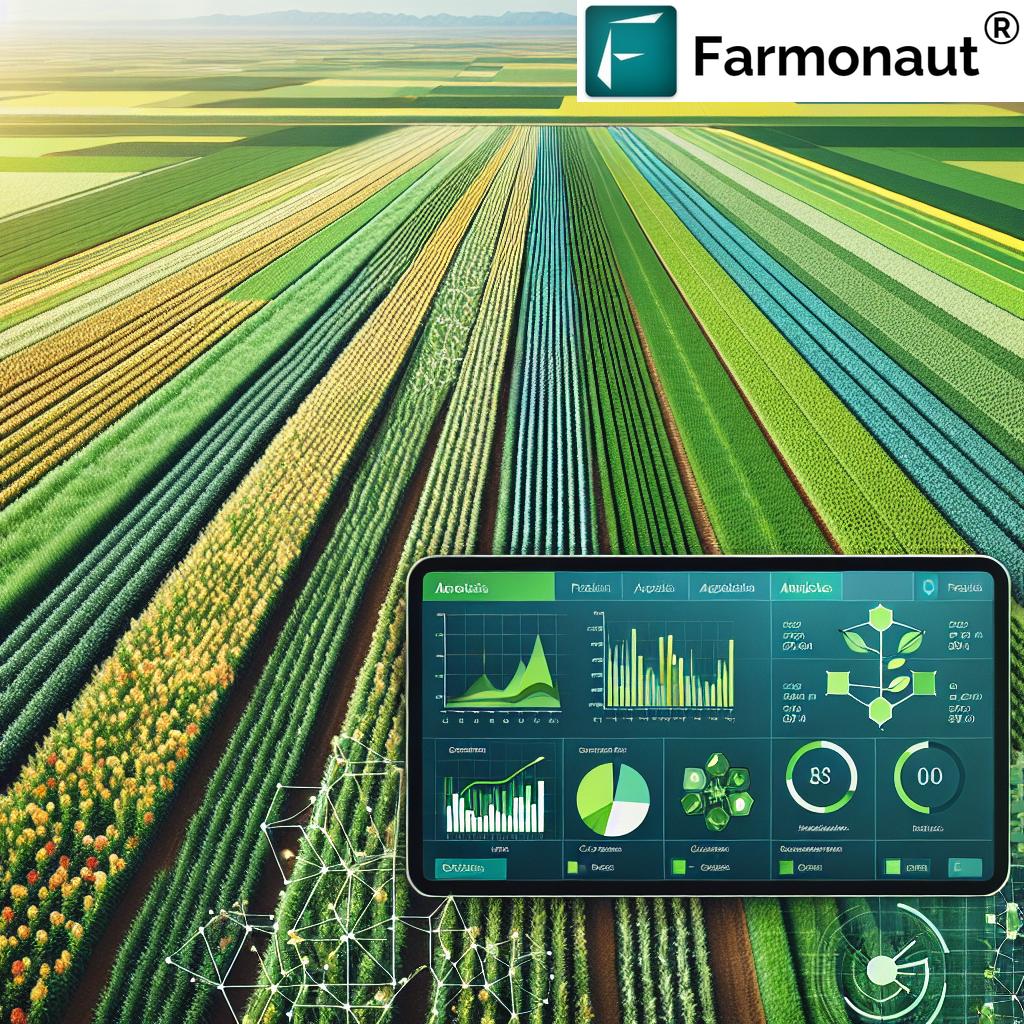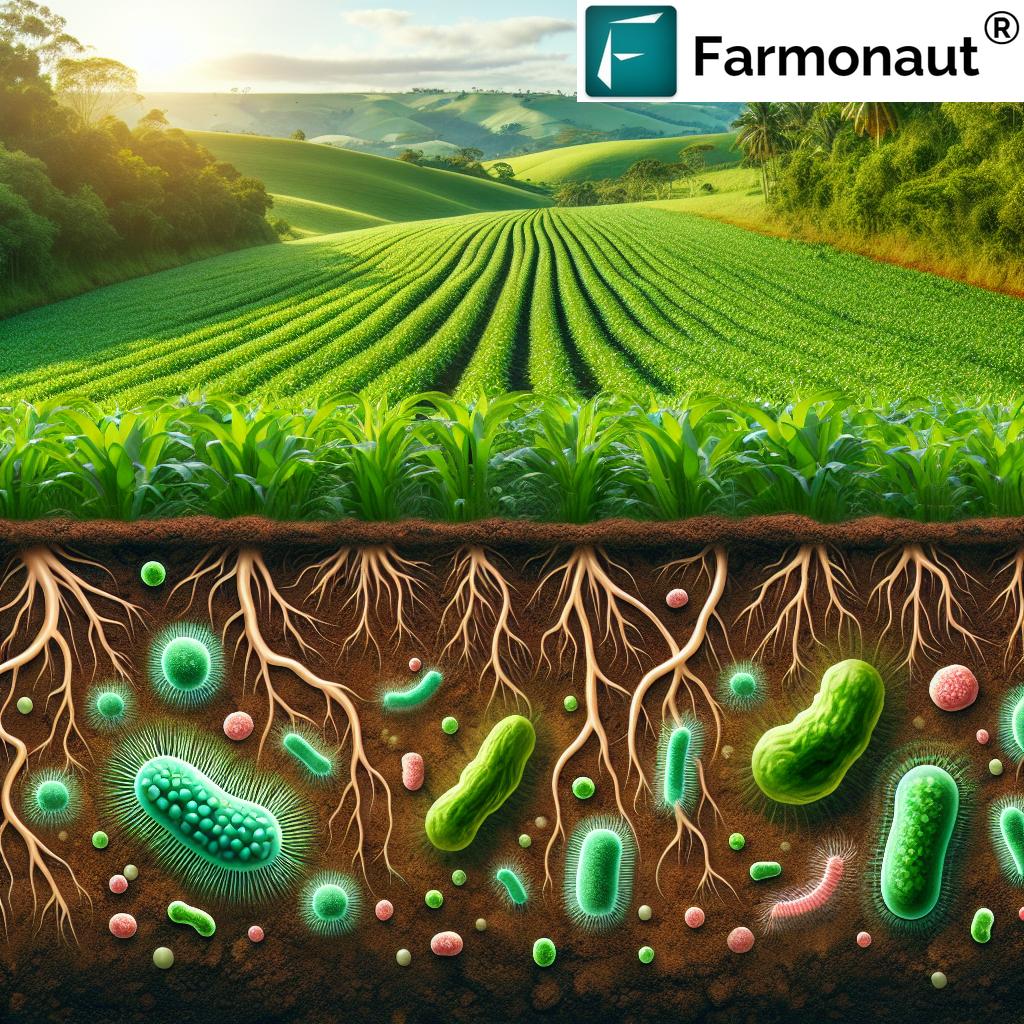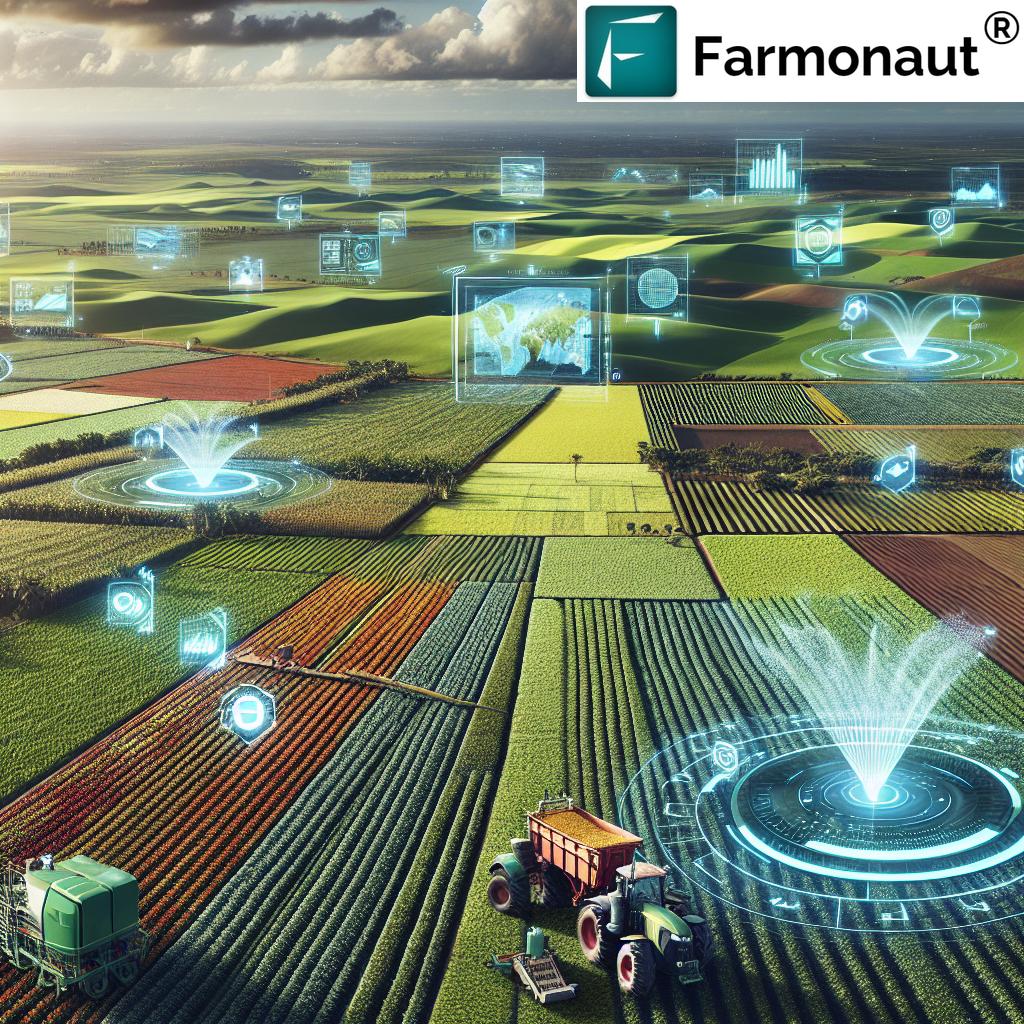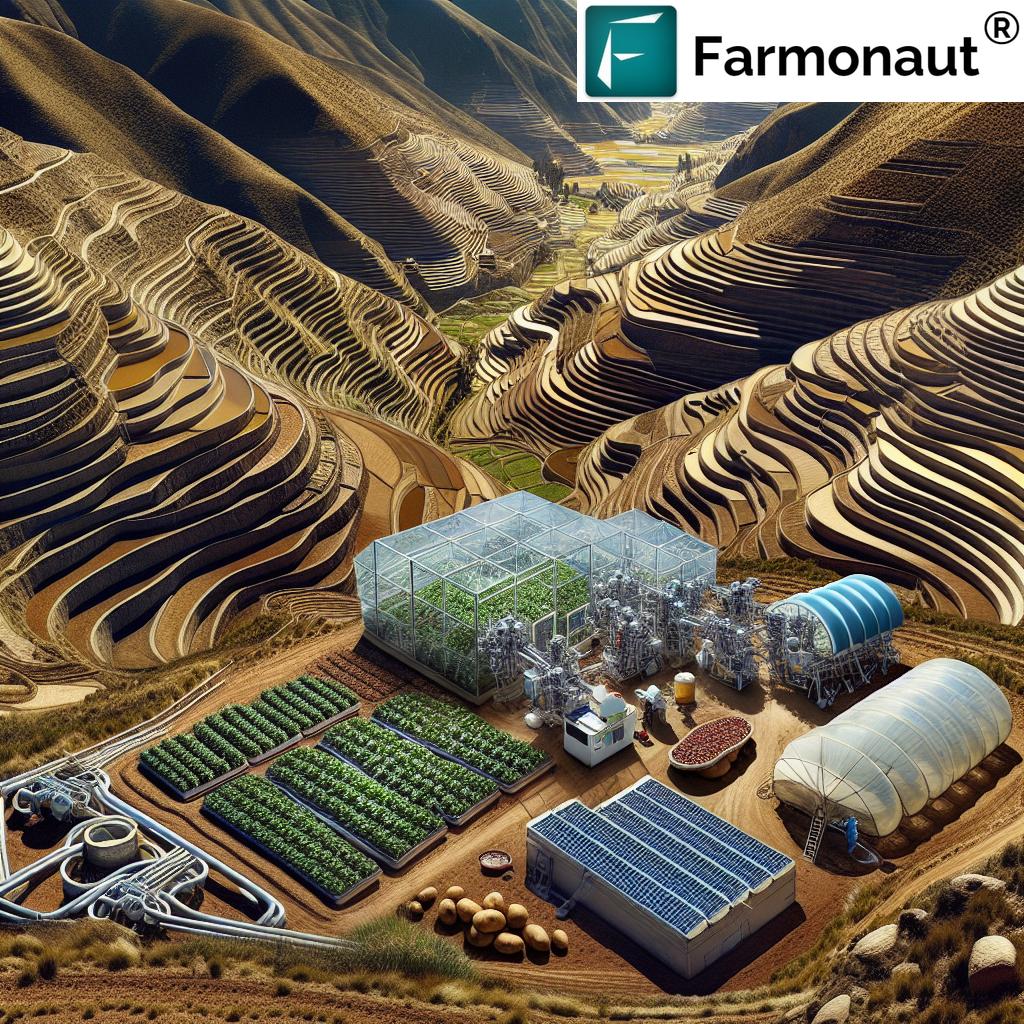Revolutionizing Brazil’s Agriculture: How Potash Mining in Amazonas Boosts Global Food Security
“Brazil’s new potash mining project in Amazonas could reduce fertilizer imports by up to 20%, boosting domestic agricultural productivity.”
In the heart of the Amazon rainforest, a transformative project is underway that promises to reshape Brazil’s agricultural landscape and bolster global food security. We are witnessing the dawn of a new era in potash mining in Brazil, with the Autazes Potash Project in Amazonas state leading the charge. This groundbreaking venture is set to revolutionize the fertilizer supply chain, not just for Brazil but for the world at large.
As we delve into the intricacies of this project, we’ll explore how it intersects with sustainable agriculture practices, innovative mining techniques, and the pressing need for food security in an ever-growing world. Join us as we uncover the potential of this strategic development and its far-reaching implications for the future of agriculture.
The Strategic Importance of Potash Mining in Brazil
Brazil, known for its vast agricultural prowess, has long been dependent on imported fertilizers to maintain its position as a global agricultural powerhouse. However, the Autazes Potash Project is poised to change this narrative dramatically. Located in the state of Amazonas, this project represents a significant step towards reducing Brazil’s reliance on foreign potash supplies.
- Domestic production boost: The project aims to significantly increase Brazil’s domestic potash production.
- Import reduction: It’s projected to cut down fertilizer imports, strengthening Brazil’s agricultural self-sufficiency.
- Economic impact: The development is expected to create jobs and stimulate economic growth in the Amazonas region.
The strategic importance of this project cannot be overstated. As global potash market trends evolve, Brazil is positioning itself not just as a consumer but as a key player in the production and supply of this crucial agricultural input.
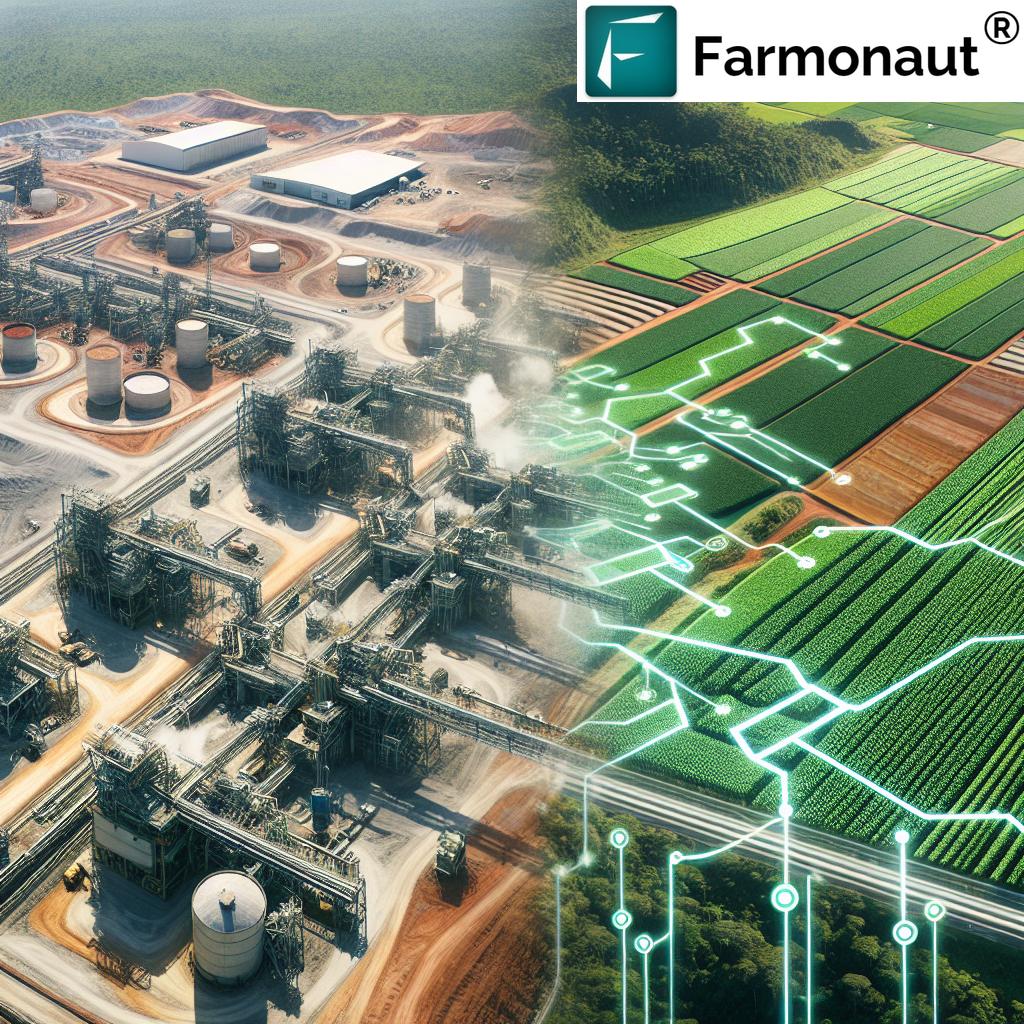
Sustainable Agriculture and Potash Mining: A Balancing Act
At the core of this project lies a commitment to sustainable agriculture. The Autazes Potash Project isn’t just about extraction; it’s about responsible resource management and environmental stewardship. Here’s how the project is addressing sustainability concerns:
- Innovative mining practices: Utilizing cutting-edge technologies to minimize environmental impact.
- Reforestation initiatives: Implementing comprehensive plans to restore and protect the surrounding ecosystem.
- Water management: Employing advanced systems to conserve and recycle water used in the mining process.
By prioritizing sustainability, the project aims to set a new standard for potash mining globally, demonstrating that resource extraction and environmental protection can go hand in hand.
The Impact on Global Food Security
The ramifications of this project extend far beyond Brazil’s borders. As one of the world’s largest food producers, Brazil plays a crucial role in global food security. The Autazes Potash Project is set to enhance this role significantly:
- Increased crop yields: Reliable access to potash fertilizers is expected to boost agricultural productivity.
- Stabilized food prices: Enhanced domestic production could lead to more stable fertilizer costs, potentially lowering food prices.
- Resilient supply chains: Reduced dependence on imports strengthens the global fertilizer supply chain.
By bolstering Brazil’s agricultural output, this project contributes to a more secure and stable global food supply, a critical factor in an era of climate change and population growth.
Agribusiness Growth Strategies: A New Frontier
The Autazes Potash Project is not just a mining venture; it’s a catalyst for innovative agribusiness growth strategies. This development is prompting a rethink of how Brazil approaches its agricultural sector:
- Vertical integration: Encouraging closer ties between mining operations and agricultural producers.
- Technology adoption: Spurring investment in agriculture technology innovations to maximize the benefits of domestic potash production.
- Export opportunities: Opening new avenues for Brazil to become a significant exporter of potash, diversifying its agricultural export portfolio.
These strategies are positioning Brazil at the forefront of agricultural innovation, setting the stage for sustained growth and competitiveness in the global market.
“The Amazonas potash project is expected to increase Brazil’s global market share in fertilizer production from 2% to 5% by 2030.”
Environmental Licensing: Navigating the Complexities
One of the critical aspects of the Autazes Potash Project is the process of obtaining environmental licenses. This step is crucial for ensuring that the project adheres to Brazil’s strict environmental regulations:
- Rigorous assessment: Conducting comprehensive environmental impact studies.
- Community engagement: Involving local communities in the decision-making process.
- Mitigation strategies: Developing plans to address potential environmental concerns.
The successful navigation of this licensing process is a testament to the project’s commitment to responsible mining practices and sustainable development.

Agriculture Technology Innovations: Synergies with Potash Mining
The Autazes Potash Project is not operating in isolation. It’s part of a broader ecosystem of agricultural innovation in Brazil. The synergies between potash mining and agriculture technology are numerous and exciting:
- Precision agriculture: Enhanced potash availability enables more precise and efficient fertilizer application.
- Data-driven farming: Integration of mining data with agricultural analytics for optimized crop management.
- Sustainable practices: Development of new technologies for environmentally friendly fertilizer use.
These innovations are set to transform Brazilian agriculture, making it more efficient, productive, and sustainable.
The Global Context: Potash Market Trends
To fully appreciate the significance of the Autazes Potash Project, we must consider it within the context of global potash market trends:
- Rising demand: Global population growth and changing diets are driving increased demand for fertilizers.
- Supply challenges: Geopolitical tensions and supply chain disruptions have highlighted the need for diversified potash sources.
- Sustainability focus: Growing emphasis on sustainable agriculture is influencing potash production and use worldwide.
Brazil’s entry into significant potash production comes at a crucial time, potentially stabilizing markets and ensuring a more secure global fertilizer supply.
Agricultural Development in Amazonas: A Balancing Act
The Autazes Potash Project is not just about mining; it’s a cornerstone of broader agricultural development in the Amazonas region. This development presents both opportunities and challenges:
- Economic diversification: Creating new economic opportunities beyond traditional industries.
- Infrastructure development: Improving transportation and logistics networks to support both mining and agriculture.
- Environmental considerations: Balancing agricultural expansion with forest conservation efforts.
The project serves as a model for how resource extraction can contribute to sustainable regional development when managed responsibly.
The Role of Technology in Modern Agriculture
As we discuss the impact of potash mining on agriculture, it’s crucial to highlight the role of technology in modern farming practices. Companies like Farmonaut are at the forefront of this technological revolution, offering innovative solutions that complement the advancements in fertilizer production:
- Satellite-based crop monitoring: Enabling farmers to optimize fertilizer use and crop management.
- AI-driven insights: Providing data-driven recommendations for improved agricultural practices.
- Precision agriculture tools: Enhancing the efficiency of fertilizer application and resource management.
These technologies, when combined with increased access to domestically produced potash, have the potential to significantly boost agricultural productivity and sustainability in Brazil.
Explore Farmonaut’s innovative solutions:
The Future of Fertilizer Supply Chain in Brazil
The Autazes Potash Project is set to transform Brazil’s fertilizer supply chain, with far-reaching implications:
- Reduced import dependency: Decreasing reliance on foreign suppliers, enhancing national food security.
- Streamlined logistics: Shorter supply chains leading to more efficient and cost-effective fertilizer distribution.
- Innovation hub: Attracting investment and talent to develop new fertilizer technologies and applications.
This transformation positions Brazil as a key player in the global fertilizer market, with potential benefits for farmers worldwide.
Corporate Governance and Sustainable Development
The success of the Autazes Potash Project hinges not just on its technical feasibility but also on strong corporate governance and a commitment to sustainable development. Key aspects include:
- Transparency: Regular reporting on environmental and social impacts.
- Stakeholder engagement: Ongoing dialogue with local communities, government agencies, and NGOs.
- Ethical practices: Adherence to international standards for responsible mining and business conduct.
These principles ensure that the project delivers long-term value while respecting environmental and social considerations.
Brazil’s Potash Mining Impact on Agriculture
| Year | Estimated Domestic Potash Production (million tonnes) | Projected Fertilizer Import Reduction (%) | Expected Increase in Crop Yields (%) | Estimated Impact on Food Security Index |
|---|---|---|---|---|
| 2023 | 0.5 | 2% | 0.5% | 0.1 |
| 2024 | 1.2 | 5% | 1.0% | 0.2 |
| 2025 | 2.0 | 8% | 1.5% | 0.3 |
| 2026 | 3.0 | 12% | 2.0% | 0.4 |
| 2027 | 4.0 | 15% | 2.5% | 0.5 |
| 2028 | 5.0 | 18% | 3.0% | 0.6 |
| 2029 | 5.5 | 19% | 3.2% | 0.7 |
| 2030 | 6.0 | 20% | 3.5% | 0.8 |
The Road Ahead: Challenges and Opportunities
As we look to the future, the Autazes Potash Project faces both challenges and opportunities:
- Infrastructure development: Ensuring adequate transportation and logistics capabilities to support increased production.
- Market dynamics: Navigating fluctuations in global potash prices and demand.
- Technological adaptation: Continuously integrating new technologies to improve efficiency and sustainability.
Addressing these challenges will be crucial for the long-term success of the project and its impact on Brazilian agriculture.
Conclusion: A New Chapter in Brazilian Agriculture
The Autazes Potash Project marks the beginning of a new chapter in Brazilian agriculture. By bolstering domestic potash production, Brazil is not only securing its agricultural future but also contributing to global food security. This project exemplifies how responsible resource management, innovative technologies, and sustainable practices can come together to create transformative change.
As we move forward, the success of this venture will depend on continued collaboration between government, industry, and local communities. The potential benefits are immense – from increased agricultural productivity to economic growth and enhanced environmental stewardship.
The revolution in Brazil’s agriculture through potash mining in Amazonas is more than just a local success story; it’s a model for sustainable development that could inspire similar initiatives worldwide. As we face the challenges of feeding a growing global population, projects like this offer hope and demonstrate the power of innovation in agriculture.
FAQ Section
Q1: What is the significance of the Autazes Potash Project for Brazil’s agriculture?
A1: The Autazes Potash Project is set to significantly boost Brazil’s domestic potash production, reducing reliance on imports, stabilizing fertilizer prices, and enhancing agricultural productivity and food security.
Q2: How does this project impact global food security?
A2: By increasing Brazil’s potash production, the project contributes to a more stable global fertilizer supply, potentially leading to increased crop yields worldwide and more resilient food supply chains.
Q3: What are the environmental considerations for this mining project?
A3: The project emphasizes sustainable mining practices, including water management, reforestation initiatives, and rigorous environmental impact assessments to minimize its ecological footprint.
Q4: How does the Autazes Potash Project integrate with agricultural technology?
A4: The project is expected to synergize with agricultural technologies, enabling more precise fertilizer application, data-driven farming practices, and the development of sustainable agricultural techniques.
Q5: What are the projected economic benefits for the Amazonas region?
A5: The project is anticipated to create jobs, stimulate economic growth, improve infrastructure, and diversify the regional economy beyond traditional industries.










